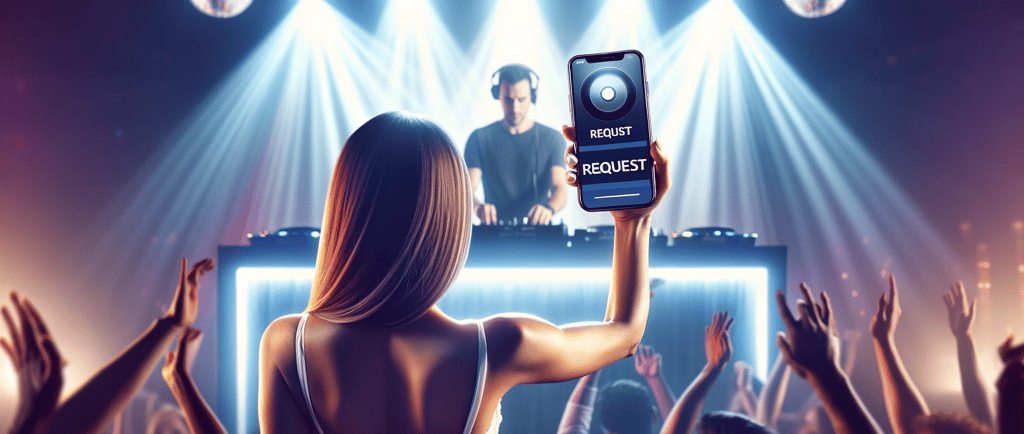The Nightclub Dilemma: When Partygoers Request Non-Danceable Music
In the vibrant world of nightclubs, where beats pulse like the heart of the night and lights dance in sync with the rhythm, there exists an unspoken tug-of-war between DJs and partygoers. LEARN MORE . . .
THE NIGHTLIFE
RSTour Staff
1/18/20243 min read


The Nightclub Dilemma: When Partygoers Request Non-Danceable Music
In the vibrant world of nightclubs, where beats pulse like the heart of the night and lights dance in sync with the rhythm, there exists an unspoken tug-of-war between DJs and partygoers. This conflict often centers around music requests – specifically, those that fall into the category of "non-danceable" tunes. It's a scenario that every club DJ has faced: amidst the high-energy throb of electronic beats, someone approaches the booth requesting a song that simply doesn't fit the dance-heavy atmosphere.
Understanding the Nightclub Scene
To fully grasp this issue, it's important to understand the role of a DJ in a nightclub setting. These skilled artists are not just playing music; they are curating an experience. Their primary goal is to keep the energy high and ensure that the dance floor remains a whirlwind of activity. They achieve this through a careful selection of tracks, each chosen for its rhythm, tempo, and ability to keep the crowd moving.
The Clash of Expectations
The problem arises when the expectations of partygoers clash with the DJ's set. While most club-goers understand the vibe of a nightclub, there are always a few who, perhaps emboldened by the night or simply unaware of the etiquette, request songs that starkly contrast with the danceable beats. These requests can range from slow ballads to niche genres that don't align with the club's atmosphere.
Why Non-Danceable Requests are a Problem
1. Momentum Breakers: Non-danceable tracks can halt the energy of the room, causing dancers to leave the floor. This disrupts the flow that the DJ has painstakingly built up over the night.
2. Mood Dissonance: Nightclubs are about a certain mood – usually one of excitement and high energy. A song that doesn't fit this mood can create a jarring experience for the majority of the patrons.
3. Crowd Management: DJs are not just playing music; they are managing the crowd. Their selections are aimed at keeping the majority happy and dancing. Catering to one person's preference can risk alienating the rest.
The DJ's Perspective
From the DJ's booth, these requests can be frustrating. They are tasked with reading the room, understanding the general vibe, and keeping the energy at a peak. When a request comes in that threatens to disrupt this balance, they face a dilemma: do they stick to their curated playlist designed for the masses, or do they accommodate an individual's preference at the risk of the overall atmosphere?
Finding a Middle Ground
The solution lies in mutual understanding and respect. Partygoers should be more aware of the nightclub environment and the DJ's role in maintaining the energy of the night. Requests should align with the overall theme of the club. On the other hand, DJs can occasionally weave in diverse tracks that maintain the tempo yet offer a slight variation to keep things fresh, acknowledging the diverse tastes of their audience.
Conclusion
The nightclub scene is a delicate ecosystem where the DJ's skill in balancing the crowd's energy with individual preferences plays a crucial role. While it's impossible to please everyone, understanding and respecting the unspoken rules of the nightclub can lead to a more harmonious and enjoyable experience for all. So, the next time you're tempted to request that obscure, slow ballad in the middle of a high-energy set, remember the art and effort that goes into keeping the nightclub alive and kicking.
© 2024 Rico Sanchez Entertainment, LLC. All rights reserved. No part of this publication may be reproduced, distributed, or transmitted in any form or by any means, including photocopying, recording, or other electronic or mechanical methods, without the prior written permission of the publisher, except in the case of brief quotations embodied in critical reviews and certain other noncommercial uses permitted by copyright law.
RSTOUR.Co
3280 Peachtree Rd NE
Atlanta, GA 30305
Contacts
ATL : +1 404.834.9059
LAX: +1 424.234.9610
© 2025 Rico Sanchez Entertainment, LLC. All rights reserved. No part of this publication may be reproduced, distributed, or transmitted in any form or by any means, including photocopying, recording, or other electronic or mechanical methods, without the prior written permission of the publisher, except in the case of brief quotations embodied in critical reviews and certain other noncommercial uses permitted by copyright law.
